A Jewish Thought
Yeshua’s “I AM”
- Ma Nishtana:
"You will never know the faces that haunt their nights... you will never know the cries that rent their sleep." Elie Wiesel
“I am the Bread of Life, Ani Lechem haChayim, the one coming to Me will never hunger, and the one who believes in Me will never thirst again.
“I am the Living Bread, Ani Lechem haChai, having come down out of Shomayim. If anyone eats of this Lechem he will live forever, le‘olam vaed. And indeed, the bread which I will give for the life of the world is My body.
“I am the Light of the world, Ani haOhr haOlam Hazeh. The one following Me will never walk in darkness, but will have the Light which gives life, Ohr haChayim.
“I am the Good Shepherd, Ro’eh haTov. The Good Shepherd lays down his life for the sheep.
“I am the Son of God, Ben haElohim. If I do not accomplish the works of My Father, do not believe Me, but if I do, even if you do not believe Me, at least believe in the works that I do, so that you may know and believe that the Father is in Me and I am in the Father.
“I am the Resurrection and the Life: the one believing in Me, even if he should die, will live, and everyone living and believing in Me, in no way shall die.
“I am the Way, the Truth and the Life, haDerech, haEmet, ve’haChayyim. No one comes to the Father except through Me.
“I am the true Vine and My Father is the Vinedresser. Every branch in Me that does not bear fruit, He cuts it off, and every branch bearing fruit He prunes it so that it may bear more fruit. I am the Vine; you are the branches. The one remaining in Me and I in him, bears much fruit because apart from Me you are not able to do anything.

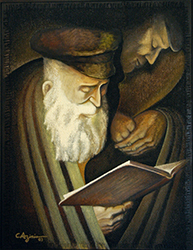
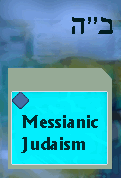 Is Messianic Judaism Biblical Judaism?
Is Messianic Judaism Biblical Judaism? 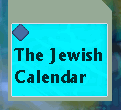 What is the Jewish Calendar?
What is the Jewish Calendar?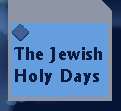 The Jewish Holy Days are the seven God's Holy Days.
The Jewish Holy Days are the seven God's Holy Days.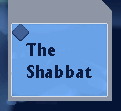 The Shabbat is the seventh day which God sanctified and set apart for worship.
The Shabbat is the seventh day which God sanctified and set apart for worship.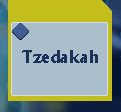 Tzedakah, the righteous giving.
Tzedakah, the righteous giving.